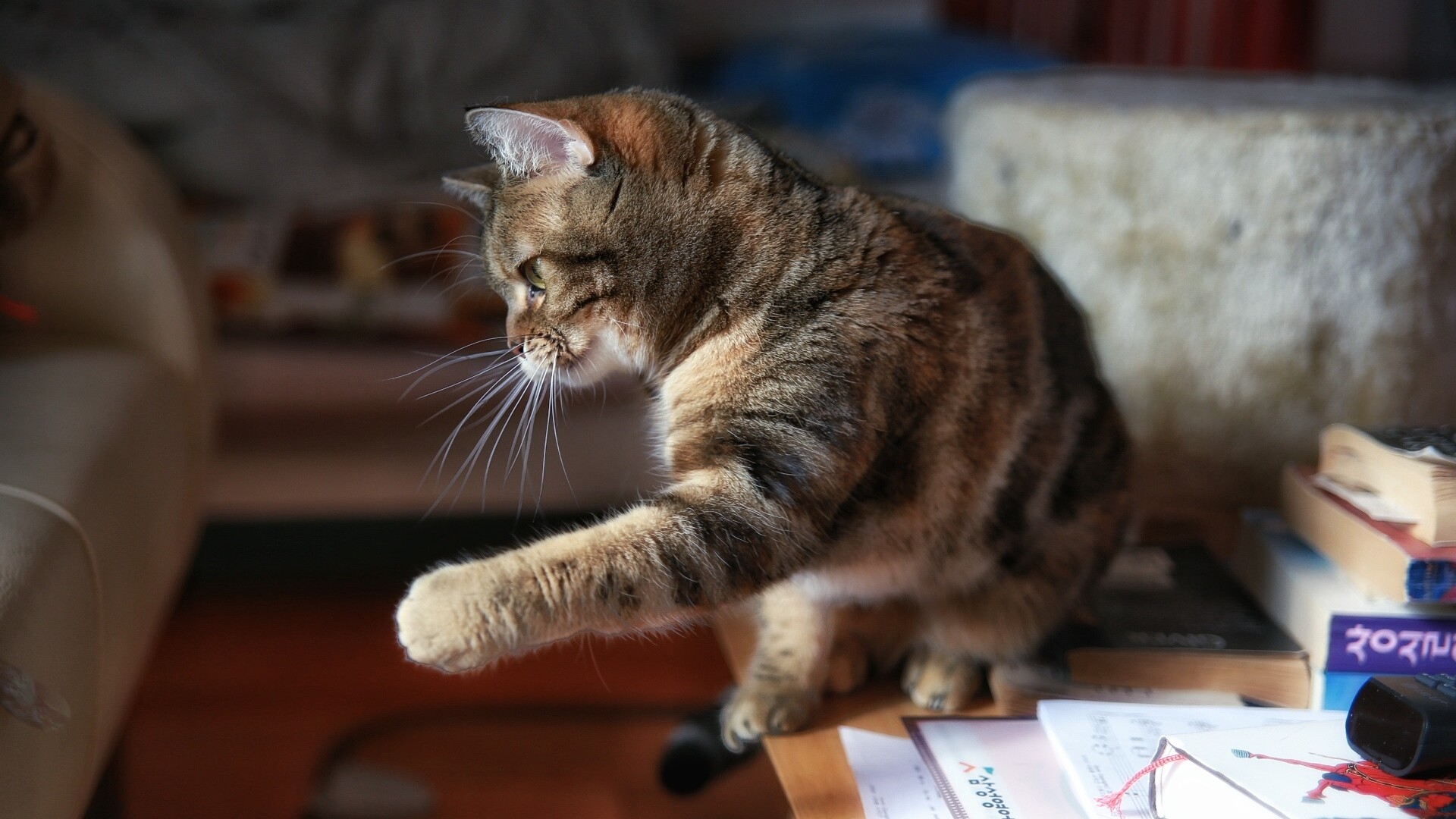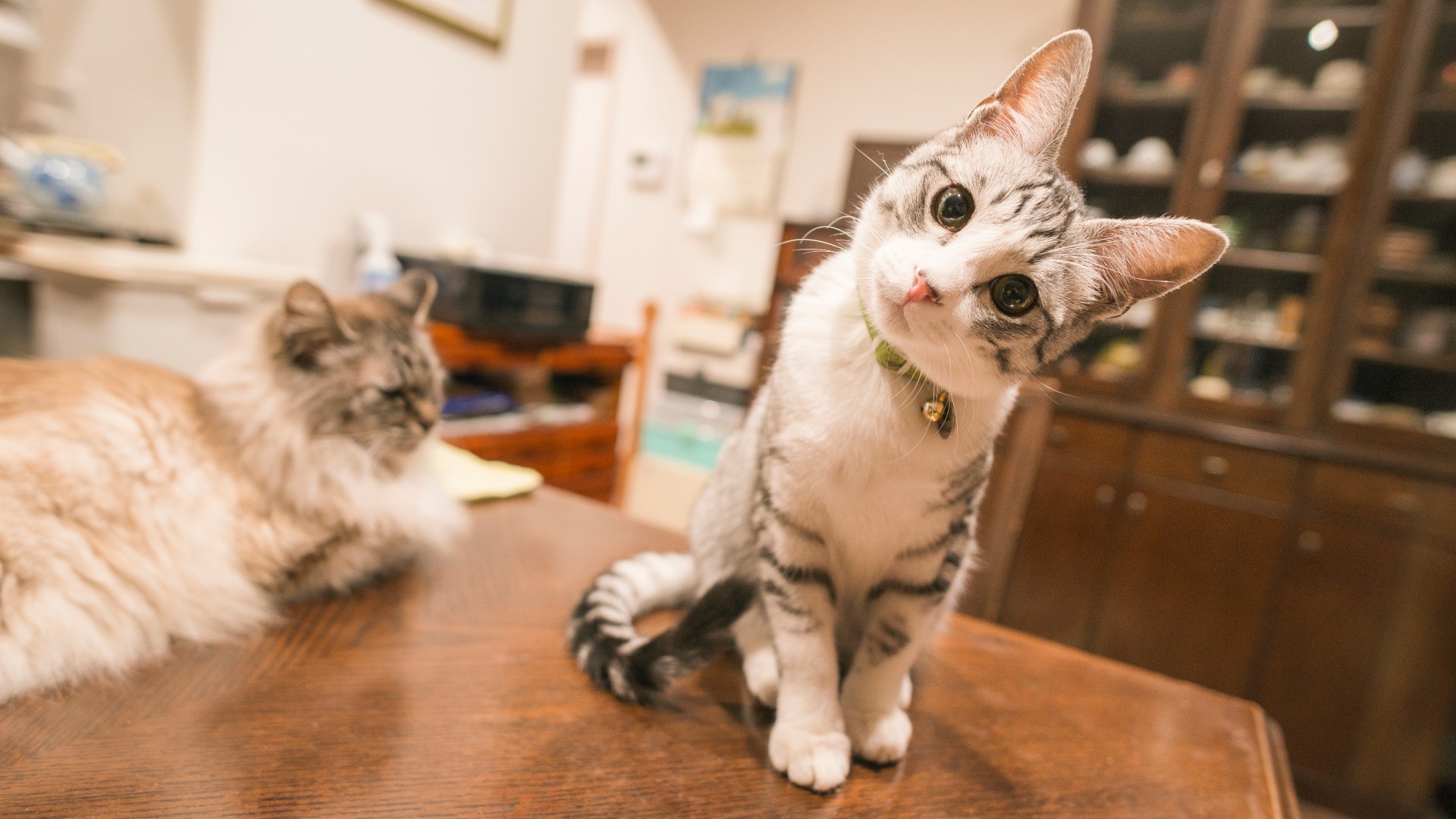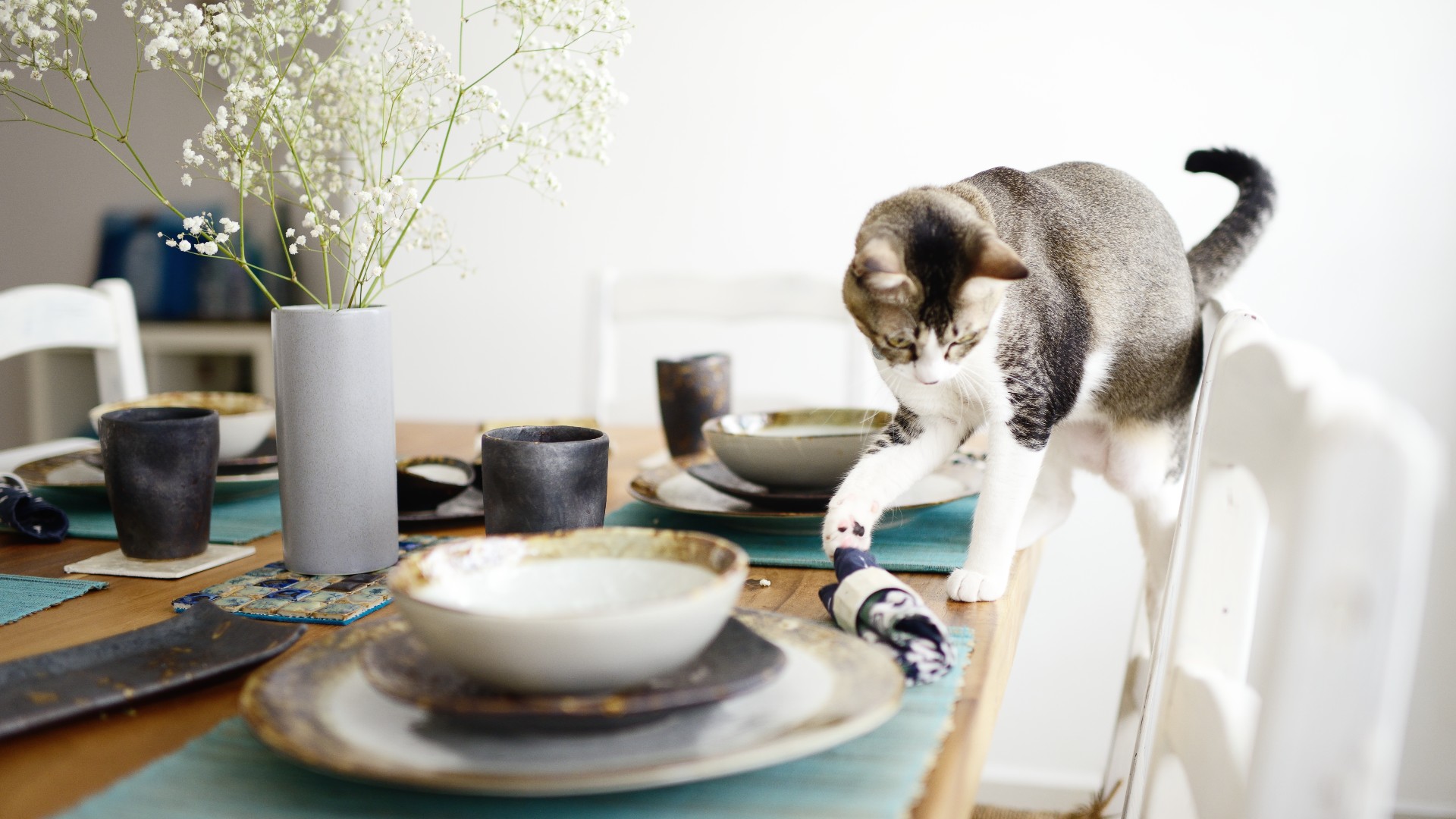Why do cats like to knock things over?
While your cat may knock things over to get your attention, most of the time they’re not deliberately trying to drive you nuts

Get the best advice, tips and top tech for your beloved Pets
You are now subscribed
Your newsletter sign-up was successful
Our feline friends are both clever and curious, and it’s those two character traits that may just help us provide an answer to that age-old question of why do cats like to knock things over? While our canine companions are often easier to understand thanks to their what-you-see-is-what-you-get natures, the reason behind why our feline furkids do what they do can be more difficult to unravel.
With brains that are 90% similar in structure to the human brain, cats have a highly developed and complex cerebral cortex. While they may not have the social IQ that dogs have, they can solve harder cognitive problems, are more persistent, and have high levels of intelligence that can make them difficult to live with.
According to Danish philosopher Berit Brogaard, the highly developed brain of our feline furkids may explain their enjoyment in knocking things over. “Cats are more impulsive than dogs and have far less patience. They don’t easily tolerate frustrating situations for long periods of time. If an activity isn’t obviously rewarding to them, they would rather do something else.”
As with anything our independent feline friends get up to, why your cat likes to knock things over could be down to a number of things, but most of the time they’re not deliberately trying to upset you. Let’s take a closer look inside the mind of the curious and clever kitty to see why they’re so intent on wreaking havoc in your home.
To get your attention

If you’ve ever watched as your cat gleefully knocks things off your table or shelves even while you stand there saying no, then you’re likely familiar with just how far your feline will go to get some attention.
While it may seem strange that a cat would risk your wrath to get noticed, it turns out these crafty creatures don’t care what form the attention comes in, as long as they get some. “Cats love attention, and even negative attention (being told off) can be rewarding,” explains Dr. Joanna Woodnutt, “They’ll quickly learn to repeat the action to get your attention, so it’s best to ignore them.”
To avoid your favorite coffee mug ending up in pieces on the floor, take temptation out of your kitty’s way. Remove breakable treasured items from low shelves and relocate them to places that are cat-proof. You could also invest in one of the best cat scratching posts or cat trees with hanging toys that will keep them amused and deter them from going after your precious possessions.
Get the best advice, tips and top tech for your beloved Pets
While you want to avoid rewarding your kitty for bad behavior, giving them plenty of attention when they’re being well behaved will ensure they feel loved. Feeding your cat on time, giving them some love during the day if you work from home, and spending time grooming them, are all great ways of giving your kitty the regular attention they need.
Because they want to play

With cats being so independent, it can be easy to forget that just like dogs, they need lots of mental and physical stimulation. When left to their own devices, your kitty will often seek out that stimulation in the only way they know how - by batting things off shelves and pushing things across tables.
Cats are super inquisitive and watching things move captures their attention. To tap into their natural chasing and pouncing instincts, make sure you have plenty of the best cat toys lying around that your kitty can engage with. If you find that the usual mouse or feather toys don’t excite your furkid, consider trying out an interactive cat toy as these provide a high degree of challenge and mental enrichment. Automated cat toys are also well worth the investment if you’re looking for something to amuse your furkid when you’re not around.
Providing your cat with alternative things to do will help divert their attention away from home destruction and it will also tire them out, which makes them less likely to be doing things they shouldn’t. “A tired cat is a well-behaved cat, so it’s a good idea to tire them out physically and mentally with games and toys,” says Woodnutt, “ Food puzzles can also be used to give your cat something other to do than being destructive!”
It taps into their natural hunting and climbing instincts

Cats are natural investigators and they have a high prey drive, which means they’re always on the lookout for something to hunt. Because they’re both curious and cautious, they’re able to quickly figure out which items in your home have the potential to hurt them and which ones don’t.
If you’ve ever used your hand to quickly test whether something is hot, cats behave the same ways with their paws, which is why you might notice them giving something a gentle nudge before they fling it off the shelf altogether.
They’re also keen climbers and they’re not all that bothered as to whether they’re climbing a tree, a couch, or a bookshelf, as long as they can get up high and survey all the action going on down below.
If your cat is regularly trying to scale your walls to get to new heights, we recommend choosing a hanging cat bed that can be mounted or suctioned onto a wall or glass. This kind of premium-penthouse living will give your furkid the view they’re after without you having to sacrifice your favorite set of crystal candle holders in the process.
Enjoyed this? Read: why do cats rub their face on things?

Kathryn is a freelance writer who has been a member of the PetsRadar family since it launched in 2020. Highly experienced in her field, she's driven by a desire to provide pet parents with accurate, timely, and informative content that enables them to provide their fur friends with everything they need to thrive.
Kathryn works closely with vets and trainers to ensure all articles offer the most up-to-date information across a range of pet-related fields, from insights into health and behavior issues to tips on products and training.
When she’s not busy crafting the perfect sentence for her features, buying guides and news pieces, she can be found hanging out with her family (which includes one super sassy cat and a kitten), drinking copious amounts of Jasmine tea and reading all the books.
She has written for a range of publications, including Fit&Well, Top Ten Reviews, LiveScience, Goodto, and Product Hunt.
